
welcome to volume 98 (September 2011) of

down in the dirt
internet issn 1554-9666
(for the print issn 1554-9623)
Janet K., Editor
http://scars.tv.dirt.htm
http://scars.tv - click on down in the dirt

Note that any artwork that appears in Down in the Dirt will appear in black and white in the print edition of Down in the Dirt magazine.
|
Order this issue from our printer as an ISSN# paperback book: or as the ISBN# book “Wisdom in Broken Hands”: |
![]()
After finding in my inbox 483 rejections fromFritz Hamilton
After finding in my inbox 483 rejections from
the shitty poems you have sent to insult our
This is repeated for everyone of my 483 poems until I
shit, enough to stop up the celestial toilet that
overflows with my pungent, pulchritudinous splender,
the Holy See, I shall record it on a Dead Sea Scroll, the
from the yacht of a pharisee that sadducee the virgin
this found under a rock in the Dead Sea in
all the boys at the Inn while Jesoo wails in the
sunset to hide in the orange groves, but he
King Herod didn’t lose Agrippa on it & go mad, an
Lexapro & Karl Rove’s machete that
Jesoo’d be a nice guy, if
ate the crust, &
!
|
![]()
19 percent of our genes are the same in chimpsFritz Hamilton
19 percent of our genes are the same in chimps/
is not a political commercial/ this is scientific fact/ from
democracy (which the ruling elite has always
great commoner, the head cow of the herd, I am the
Henry Clay & wallower in the mud, an admirable stud with
pert, I bring democracy to the ordinary skirt, &
anarchist with an iron fist & a !
|
![]()
Saturday’s SwaggerChristopher Hanson
It was an early night –
|
“The man with many names.” |
![]()
follow this link for the cartoon
Something is Wrong
by Victor Phan
![]()
FreeMel Waldman
I watch the violence on CNN in my Brooklyn home.
I eat your sadness. I cry. I drink the blood of war.
I shriek the voices of the oppressed.
The dead can’t rest for vultures fly above. They smell
My battered brain tastes the surging waves of red sand
Peaceful protestors died here so others could
I shriek the voices of the oppressed.
I can’t bear the brutal finality. When strangers suffer,
We, the people of the earth, are forever connected. We
I shriek the voices of the oppressed.
|
BIOMel Waldman, Ph. D.Dr. Mel Waldman is a licensed New York State psychologist and a candidate in Psychoanalysis at the Center for Modern Psychoanalytic Studies (CMPS). He is also a poet, writer, artist, and singer/songwriter. After 9/11, he wrote 4 songs, including “Our Song,” which addresses the tragedy. His stories have appeared in numerous literary reviews and commercial magazines including HAPPY, SWEET ANNIE PRESS, CHILDREN, CHURCHES AND DADDIES and DOWN IN THE DIRT (SCARS PUBLICATIONS), NEW THOUGHT JOURNAL, THE BROOKLYN LITERARY REVIEW, HARDBOILED, HARDBOILED DETECTIVE, DETECTIVE STORY MAGAZINE, ESPIONAGE, and THE SAINT. He is a past winner of the literary GRADIVA AWARD in Psychoanalysis and was nominated for a PUSHCART PRIZE in literature. Periodically, he has given poetry and prose readings and has appeared on national T.V. and cable T.V. He is a member of Mystery Writers of America, Private Eye Writers of America, American Mensa, Ltd., and the American Psychological Association. He is currently working on a mystery novel inspired by Freud’s case studies. Who Killed the Heartbreak Kid?, a mystery novel, was published by iUniverse in February 2006. It can be purchased at www.iuniverse.com/bookstore/, www.bn.com, at /www.amazon.com, and other online bookstores or through local bookstores. Recently, some of his poems have appeared online in THE JERUSALEM POST. Dark Soul of the Millennium, a collection of plays and poetry, was published by World Audience, Inc. in January 2007. It can be purchased at www.worldaudience.org, www.bn.com, at /www.amazon.com, and other online bookstores or through local bookstores. A 7-volume short story collection was published by World Audience, Inc. in June 2007 and can also be purchased online at the above-mentioned sites.
|
![]()
Wisdom in Broken HandsBrian LoRocco
Ray Dawson was sitting on a broken locker room bench with his hands still wrapped, breathing the sweat off his body, and listening to all the familiar post-fight noise—the obnoxious voices of other fighters, some celebrating, some excusing, some talking about who they were going to screw tonight, and his own trainer, seven years his junior, bullshitting and laughing with them. The talk, the nonsense, the laughing, all of it, still bothered him. It was not what he wanted to hear after losing. But what was the big deal? He’d been losing for a long time now. Forty one years old, Ray was, and this time he’d been beaten up by a nineteen year old from Flatbush.
His rusted locker door creaked harshly. He wondered if there would be an empty can of tomato sauce in there (some punk did that one time, broke the lock and left it right up there, dirty as it was) but there was nothing but his belongings, his clothes, his wallet, his cell phone, and keys.
He was hungry. He was hungry, and the Hungry Man’s Salisbury steak in the freezer wasn’t going to cut it. No, he was in the mood for French onion (freedom onion—as Jonesy called it; and Ray would say let it die already, it’s not funny anymore) that plus a burger. A juicy, rare cheese burger. He took the bus out of Manhattan, came through the Lincoln Tunnel and decided he would stop over in Hoboken, stop in at the Malibu, and that was what he did. He realized his shades were still in his bag. If there was one thing he hated, really hated, was when a pretty waitress came up to him and said (and they all said the same thing): “My goodness, were you in a fight?”
There was a large crowd of people dressed handsomely outside the bar, guys in button downs, girls in tight jeans and sexy dresses, with their hair and makeup perfect; smoking and chatting, under the overhang lamplights. Ray walked passed them hearing some of those pseudo accents, but also hearing a lot of strong Jersey accents. As he was going in he heard one loud mouth guido talking to his boys about his M5, but Ray thought he was really talking to the surrounding girls in jest. Looking for some cheap ho, to go wow you drive a Beamer. Yeah, and I also live at home.
Ray sipped the Hennessy while looking around the bar casually, trying not to give up too much, trying not to look eager, but not seeing Heather anywhere. The bar was very crowded, and hot.
|
![]()
So SickHolly Day
I am becoming nothing
that I am becoming nothing
I am becoming nothing
ball them up and hide them in a place
|
![]()
A little bit of hopeKirby Light
Some men are worthwhile
Or go downtown
Flashing cab drivers for free rides Beautiful women
No woman wants to sit But they will one day
After my word on
|
![]()
Left in SwahiliKate Kimball
Anne needed to exchange a hundred dollar bill, and she wasn’t sure about crossing the street to the bank because there weren’t any traffic signals. She was arguing with Abasi about getting directions. He stood next to her, consulting a map, the sheen of sun on the fold of his neck, insisting that they walk another block to the bus stop. It had to be over a hundred degrees. At home, Abasi would have been inside watching television or talking on the phone, and she would have had to beg him to venture out. He wasn’t much into adventure or exhaustion, but Anne was always convinced that she could change this. It was this reason that she had stayed married for the last few years.
Anne was a woman that experienced everything through the physical reaction to the body. She knew she was sad when she felt tears. She knew she felt happy when she was filled with the urge to smile or laugh. Love with Abasi was painfully intimate, sometimes to the point that he had said he felt as though she knew everything about him and he had nothing left to himself. She did have a way with exposing him. Allowing her to do this was one of the things she loved about him most, even though it scared her a little and she was afraid she would one day lose him.
“You don’t need to always worry me,” Abasi told her when she returned. She held up the shillings and laughed. “There are other ways to be entertained. This isn’t like New York, you know. If something happens here and you have to go to the hospital, it can be more dangerous than getting in an accident—”
Anne felt the familiarity of New York City along the streets of Nairobi once Abasi agreed to follow her, even though it meant forgetting the taxi. It was like Abasi had once said, no matter what—home always finds There was no stopping it. It was as if Nairobi was the black and white version and New York—the remake in Technicolor. They were both so classic and decadent, something that belonged to postcards or museums, but never to the people who walked it day after day. She thought of the corner pavement next to the gym she went to every morning and how when the light hit it a certain way, it looked as though it was filled with diamonds. The library, where she worked, had a fountain that was filled with coins that gave off the same shine. She saw the same patterns in the streets of Nairobi—the same subtle shine on the roofs of cars, in the smiles of the people, in the corner pavement that bordered the streets.
“Honestly, I can’t make out a word you’re saying,” Mwangi Kipnegro said to Anne when she went to introduce herself. “Where did you say you were from?”
Mostly, they ate in silence interspersed with Swahili. Sometimes, Mwangi would catch himself and switch back to English so that she could feel less left out. She listened to the small chime of the silverware on the china. A candle flickered in the breeze and the sun was setting and filling the sky with its magic.
“You need to learn Swahili from me,” Mwangi said with a laugh. “You know about Swahili, right?”
“Why do you insist on approaching everything like an argument? I mean, it was just a meeting, and there are things to go over and I told you this, remember?” Abasi paced back and forth in the hotel room, taking off his tie and throwing it in the corner with the same vigor that Mwangi had when he paid for dinner.
|
![]()
A Second OpinionU. Ebiz
Takeshi had booked himself a flight to a large southern city and a room for three nights. He told the hotel waitress that it was his first visit to America – she recalled him chuckling at photographs on the breakfast menu, that he’d ordered steak and eggs and barbequed fries and a double side of pancakes, and then not eaten a bite. From the restaurant he had gone to the hotel lobby and asked for a taxi, showing the bellhop a web page he had downloaded before leaving home of a nearby gun club. The owner of the gun shop told the police that Takeshi had wanted to shoot something big – he’d asked for something like Dirty Harry might have used. He had chosen a ‘45 from the display cabinet, paid the fee to rent gun and firing range for half an hour, and as he’d never touched a weapon before the shop owner gave him some instruction and stayed with him to make sure he got the hang of things. Takeshi shot 50 rounds into various targets – once he found the Bin Laden target he stayed with it, as it made him laugh – and then he took a cab back to his hotel to get some sleep. Later that afternoon he took another cab back to the gun shop, fired off another 50 rounds at Bin Laden, then returned to his hotel room. A few hours later Takeshi went to the gun shop once again, rented the ‘45, and put the first bullet through his own head.
But some hours later, as his shift was coming to an end, Jason found that his thoughts kept returning to that ambiguous moment in the trauma room. It felt to him that he’d made a mistake. He finally had time to review the CT-scan of the patient’s head, which only magnified the extent of the disaster he had already presumed: the bullet had passed through the root of Takeshi’s tongue, then bounced off the base of his skull and torn through his optic nerves, sending fragments of metal and bone ricocheting in all directions, but mostly through his frontal lobes. Frontal lobes are where time exists, knowledge of past and future, of right and wrong, of the difference between trees and dogs. Never again could that man hope for even a guilty mind. And if his body survived he’d be blind, he’d be mentally retarded and, as the bullet had demolished his tongue, unable to speak. Not even to say he was hungry, or depressed, or in pain.
The administration soon identified Takeshi’s parents in Japan, and informed them that the hospital had saved their son’s life. A few days following the accident Jason overheard his nurses saying that the parents had arrived to see their son.
|
U. Ibiz Bio (03/10/11)U. Ibiz has traveled and worked as a physician from Manhattan to Afghanistan and Texas, and is currently writing a novel entitled “Whose Blood and Judgment?” He has short stories in or forthcoming in Wilderness House Review, Lowestoft Chronicle, Midwest Literary Magazine, The Ear Hustler, and The Foundling Review.
|
![]()
Rampage of the Giant ChickensJohn Ragusa
“I would have beaten John F. Kennedy for the presidency if they hadn’t made me look so cruddy for the debate,” Gordon Crothers said.
|
![]()
Cry Not the LaborRobert Brabham
It all depends on your definition of love and whether or not you believe that no good deed goes unpunished. Depends on what you think good is too. Maybe it changes over time. Back when I used to pray I asked God not to make me stop crying, but to give me more tears. That was before I knew what suffering really was. ;
I sit and drink more often than not. I don’t know of any reason why I shouldn’t. I think about my brother I couldn’t save and his daughter I couldn’t save and the boy I almost destroyed. I still work and I’m still honest about it. I saved that text. I look at it every night because of that one word, daddy. Two years since I heard it. It’s like a little seed of hope that’s planted deep in my heart. If the word can come back then maybe the feelings and maybe...
|
![]()
Extraordinary RenditionJem Henderson
Peeling paint reveals
His wife at home, in the dark
Question, question, question
With fingernails and teeth, remove
Inshallah. What do you know?
Co co rico co co rico And he is elsewhere
Security, service interrupted For your health.
|
Jem Henderson BioJem Henderson is a writer and artist based in Harrogate. She is currently studying English Literature at York St. John University. She has a chronic nicotine habit, and realises that painting probably won’t keep her in cigarettes for long, hence the poem. She has previously been published in Beautiful Scruffiness, Branded and Convozine.
|
![]()
Mono-gamyClinton Van Inman
Dragged before white cake
|
![]()
The Angry ArtistRon Richmond
A weary artist
“Why is the landscape vanishing?”
The gull laughs,
“And you’ll leave me with this nothing,
“Why yes,” states the gull,
|
![]()
Déjà ViewedEmma Eden Ramos
Sierra Kneiling has been seven for three months now. She is the youngest of Will and Sandra’s three children, but no one would dare call her the “baby” of the family. She is tall for her age, has freckles, straight dirty blond hair, big blue (almost grey) eyes and a wonderfully mischievous laugh. Sierra is a sharp young girl who, unlike most children her age, has no tolerance for being coddled or infantilized. “Sierra is the boss,” Will sometimes said of his youngest daughter, “she could crush an army.”
Dr. William Kneiling, MD, works on the thirteenth floor of the new Brooklyn Supreme Court building. For seven years he has worked as a Forensic Psychiatrist in Brooklyn, conducting competency evaluations and testifying as an expert witness in Mental Health Court.
“Hello, Dr. Kneiling?”
“Will? It’s Sharon, from work.”
“Will?” Tom calls the Kneiling home from his car. “Will I have some new information. Its...”
|
Emma Eden Ramos Bio (2010)Emma Eden Ramos is a writer and student at Marymount Manhattan College in New York City. Her fiction has appeared in BlazeVOX, The Legendary, and The StoryTeller Tymes. She also has a piece forthcoming in Yellow Mama.
|
![]()
The Beatnick and The MonkDaniel J O’Brien
Today I am a beatnik, pointed beard, tilted cap,
I love to hide in the early 60s, when rebels had
Monk is pounding his fingers across the piano like
I am sitting here, at table, writing lines for a
I walk out on the cold streets of New York, 57 Chevys
I head to my apartment, replaying Coltrane’s riffs
The morning alarm rings on my cell cell phone. Most dreams
|
![]()
Down HereKelsey Threatte
Judge us. Label us. Weigh our worth.
The bad’s much worse down here
We will scrounge down here, suffer and survive
We have felt a lowness you have never noticed
|
Kelsey Threatte brief bioCalled a hundred names in a dozen cities. A twenty-something English teacher in the city of brotherly love born in the town that begins with Love. Returned from a year of self-discovery in the birth place of the three monoliths. Drunk on Bedouin whiskey, high on Chefchaouen mountain air.
|
![]()
Write OutJohn L. Campbell
Julia was in a white room, filled with white cats. They were screaming, screaming, screaming. She wasn’t sure why, and didn’t know quite how she knew they were screaming. She couldn’t hear them, yet she knew it just the same.
|

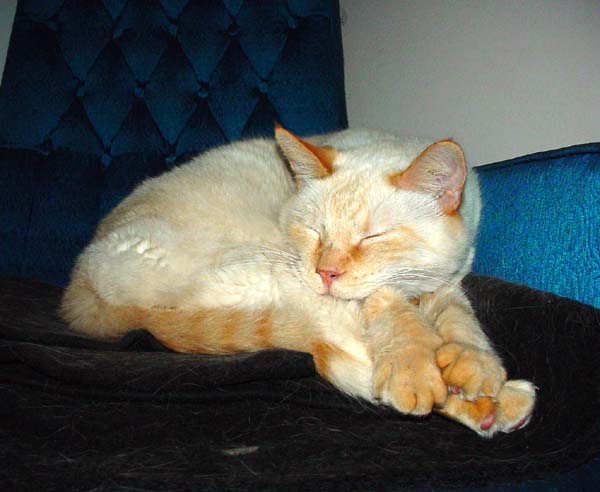
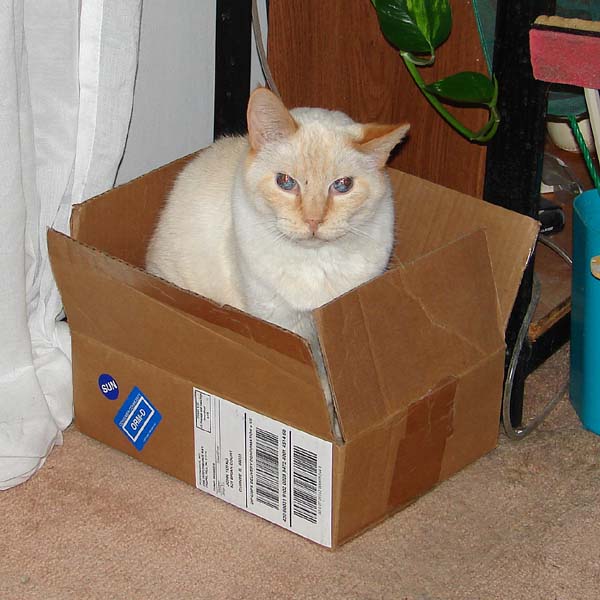
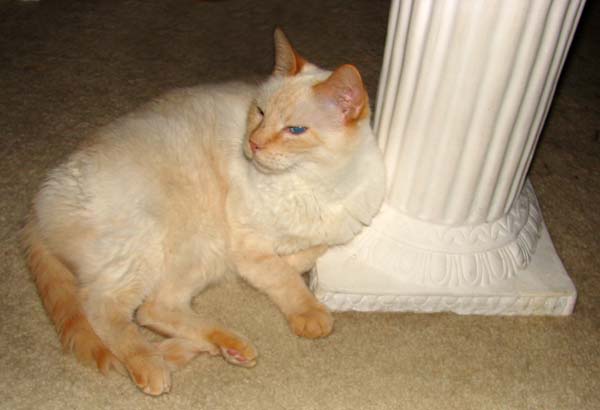
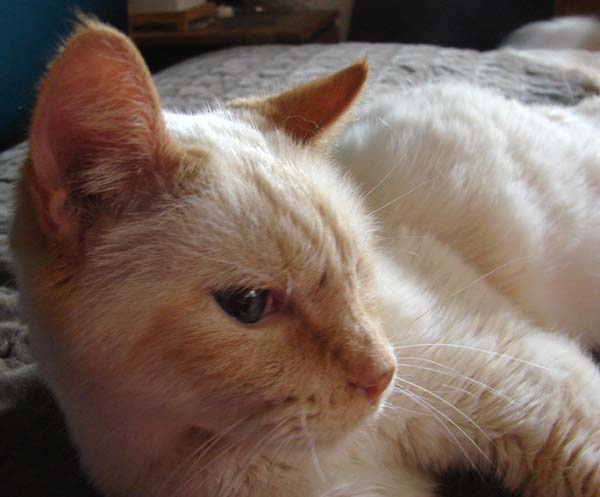
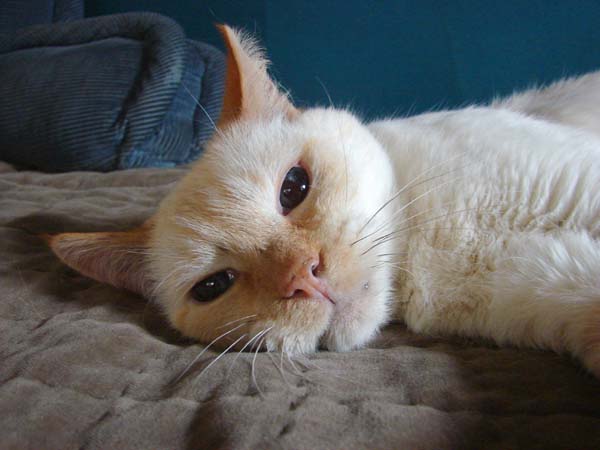
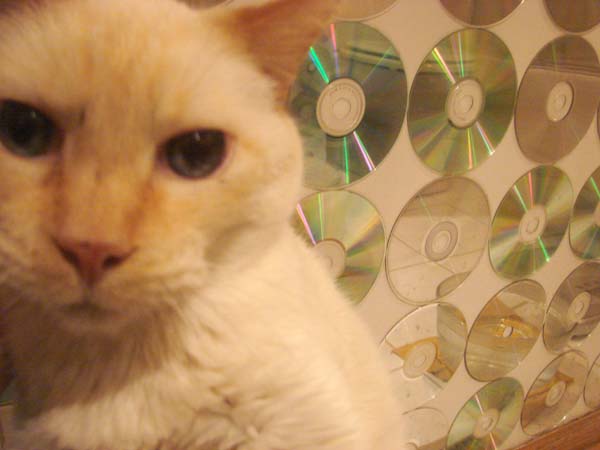
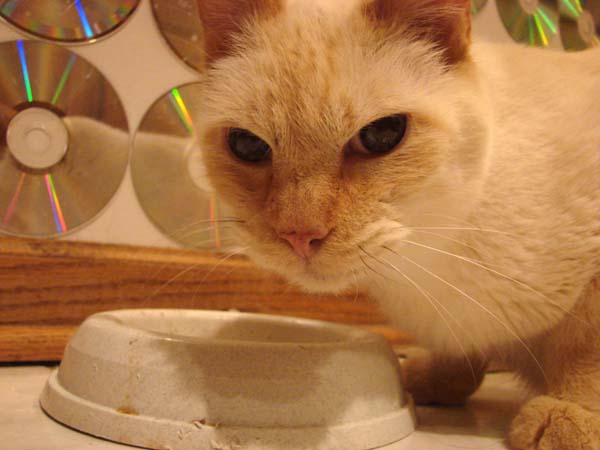
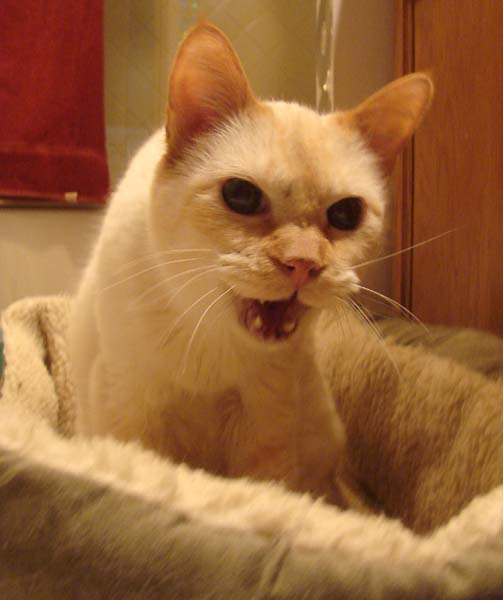
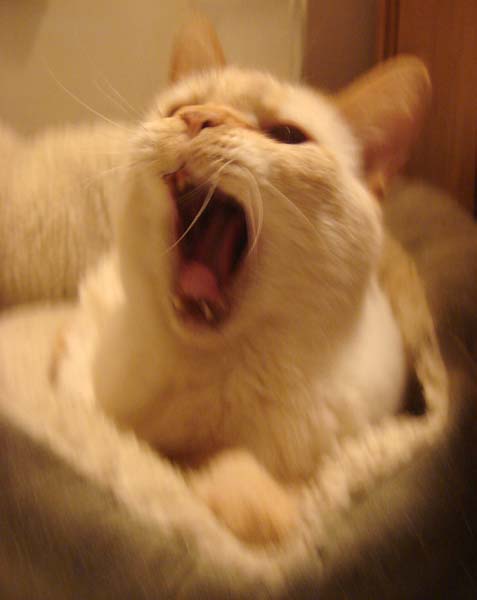
![]()
Teaspoon Of WaterDenny E. Marshall
Life is a desert, hot, hard, and beautiful Previously Published in Parnassus Literary Journal Winter 1996
|
![]()
the book of HelenaJanet Kuypers(2003)
time: 26 CE
Helena only passively kept interest in Antony, the man who had once courted her in Greece, though he kept his eye on her. Her state treated her and other women on very unequal footing with men, but she knew that her country thought she had some value, even if her value could only be through raising children or tending a home for a future husband.
Haimon and Rheia, Helena᾿s parents, worried that it was not a good idea to let Helena to move to another country and live without a man, they worried she may be thought of as a loose woman and she would not find a man to marry and would resort to prostitution. But Helena᾿s pleas were unrelenting; they knew of the greater chances she would have by working and studying in Alexandria versus their small town in Greece, and they underststood that her intelligence and strength would help her through her life, and she could always come home if things on her own did not work well quickly. They wondered how she would be able to study in libraries to learn while there; but after Helena and her future roommate relented, Helena᾿s parents were able to pay for her half of paying for Helena and Lana᾿s home for one year. After a tearful good-bye with her parents just after she turned eighteen, Helena left with a carriage full of belongings with her friend Lana.
They only snacked on the fruits and nuts Antony brought them; after not eating most of the day they weren᾿t hungry for a lot of food to fill them up. Antony kept refilling their drinks for them.
Helena was having a good evening, and it was nice to talk with someone other than Lana on her first night in Alexandria. Antony was there to bring food, though they didn᾿t eat much of it that night, and he was like a servant bringing drinks for anyone who wanted it. ᾸYou know, it is usually the woman᾿s job to cater to the group with food and drink pouring.Ᾱ
Another hour or two passed, it was getting very late, and Lana looked like she was about to pass out. Helena was drunk from the evening of drinking too; she was having a hard time holding her head straight up and her speech was getting slurred. Antony finally spoke. ᾸLana, if you want to lay down, that᾿s fine,Ᾱ and he turned to Helena and said more softly, ᾸI can go home in the morning to get ready for work, so I can stay here.Ᾱ He then leaned over and kissed Helena.
Helena had to wake Lana from her sleeping sitting position in case she wanted to get ready for sleeping on her reed mat for the night, but Lana didn᾿t even want to bother changing into clothes to sleep in. Lana just groaned, giggled a little when she saw that Antony was still there, and started to move her body so she could just rest there and get to sleep. When she found a blanket from one end of the mat, she dragged it up her body and turned her head to face the wall.
They talked for a few minutes; Antony then leaned over and ran his hand along the side of her face and said, ᾸI᾿ve missed you,Ᾱ before moving to kiss her.
The next morning Antony was still there, and Lana still wasn᾿t waking up. Helena saw that he was there and knew he had to go so she curled up into a ball at the far end of the mat before waking him. ᾸAntony, wake up. You have to go to work.Ᾱ
His running out woke Lana, but only hearing the noises, she did not see him as he left. ᾸHelena... how long have I been sleeping?Ᾱ
Helena spent the rest of the morning working with Lana on getting food from the market they could keep for a week᾿s worth of food, and they finished trying to rearrange their belongings in their new home. Lana wanted to go back to the market to see if there is anyone she could meet there; Helena wanted to head straight to the library to collect information. She turned one corner and started reading titles of authors in the books set in rows on the shelves, listed in order of the dates of the writings.
Helena grabbed two volumes form Plato᾿s work and was about to grab a book from Socrates, when Pedibastet walked from aisle to aisle to find her. ᾸHelena, we just received a copied set of books from the philosopher/mathematician Aristotle. I don᾿t know what you᾿re looking for, but there -Ᾱ The first thing she did was start reading over Nicomachean Ethics. She scribbled notes, and started immediately generating theories of moral and sound treatments for women who have been abused by men.
Ᾰ...and if we do not choose everything for the sake of something else (for at that rate the process would go on to infinity, so that our desire would be empty and vain), clearly this must be the good and the chief good. Will not the knowledge of it, then, have a great influence on life? Shall we not, like archers who have a mark to aim at, be more likely to hit upon what is right?Ᾱ
Helena knew that women were taught to be there for men, and they were taught to not fight back; she knew that women would not want to stand up for themselves, but something would have to be done if women would not be hurt from men in the future. |
Janet Kuypers Bio
Janet Kuypers has a Communications degree in News/Editorial Journalism (starting in computer science engineering studies) from the UIUC. She had the equivalent of a minor in photography and specialized in creative writing. A portrait photographer for years in the early 1990s, she was also an acquaintance rape workshop facilitator, and she started her publishing career as an editor of two literary magazines. Later she was an art director, webmaster and photographer for a few magazines for a publishing company in Chicago, and this Journalism major was even the final featured poetry performer of 15 poets with a 10 minute feature at the 2006 Society of Professional Journalism Expo’s Chicago Poetry Showcase. This certified minister was even the officiant of a wedding in 2006. |
![]()



